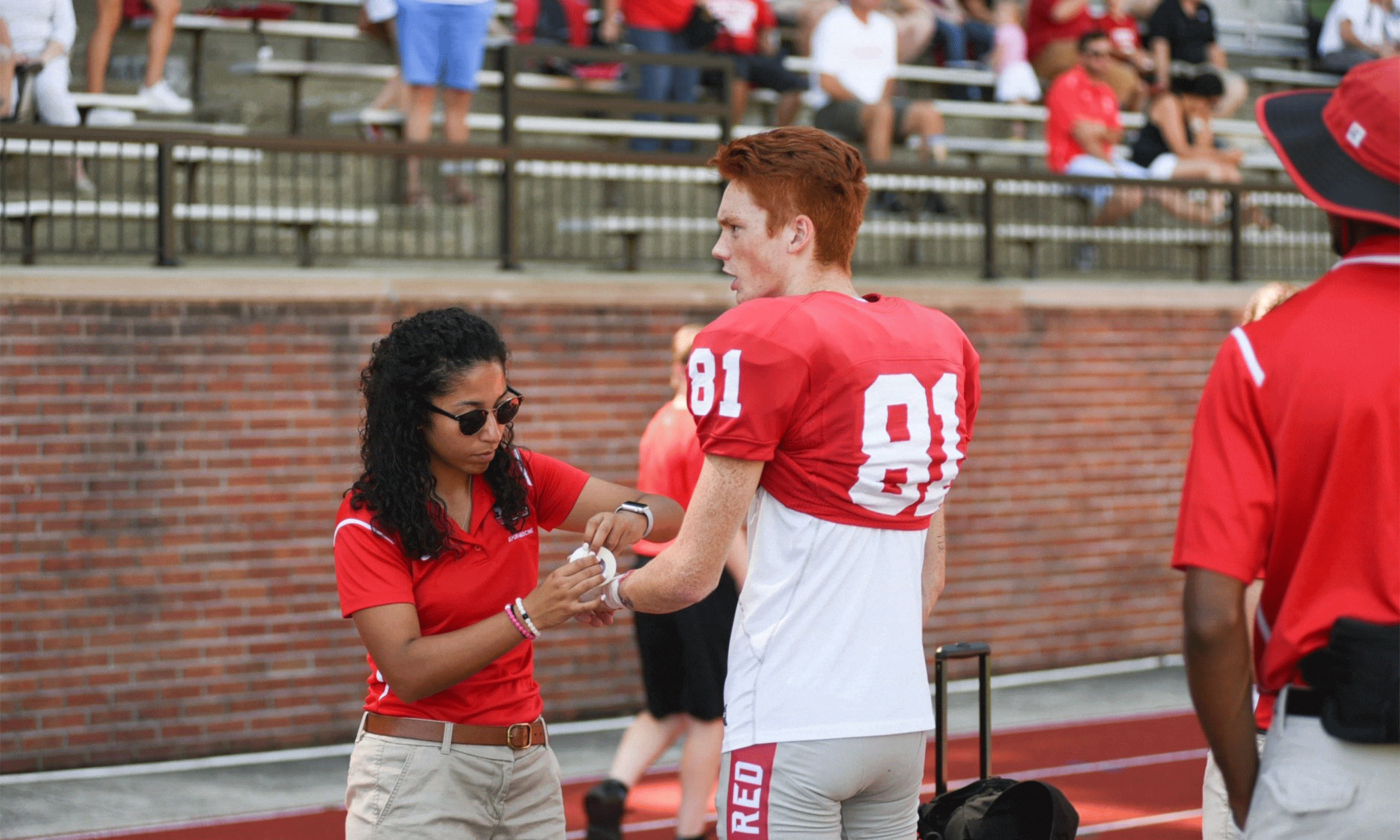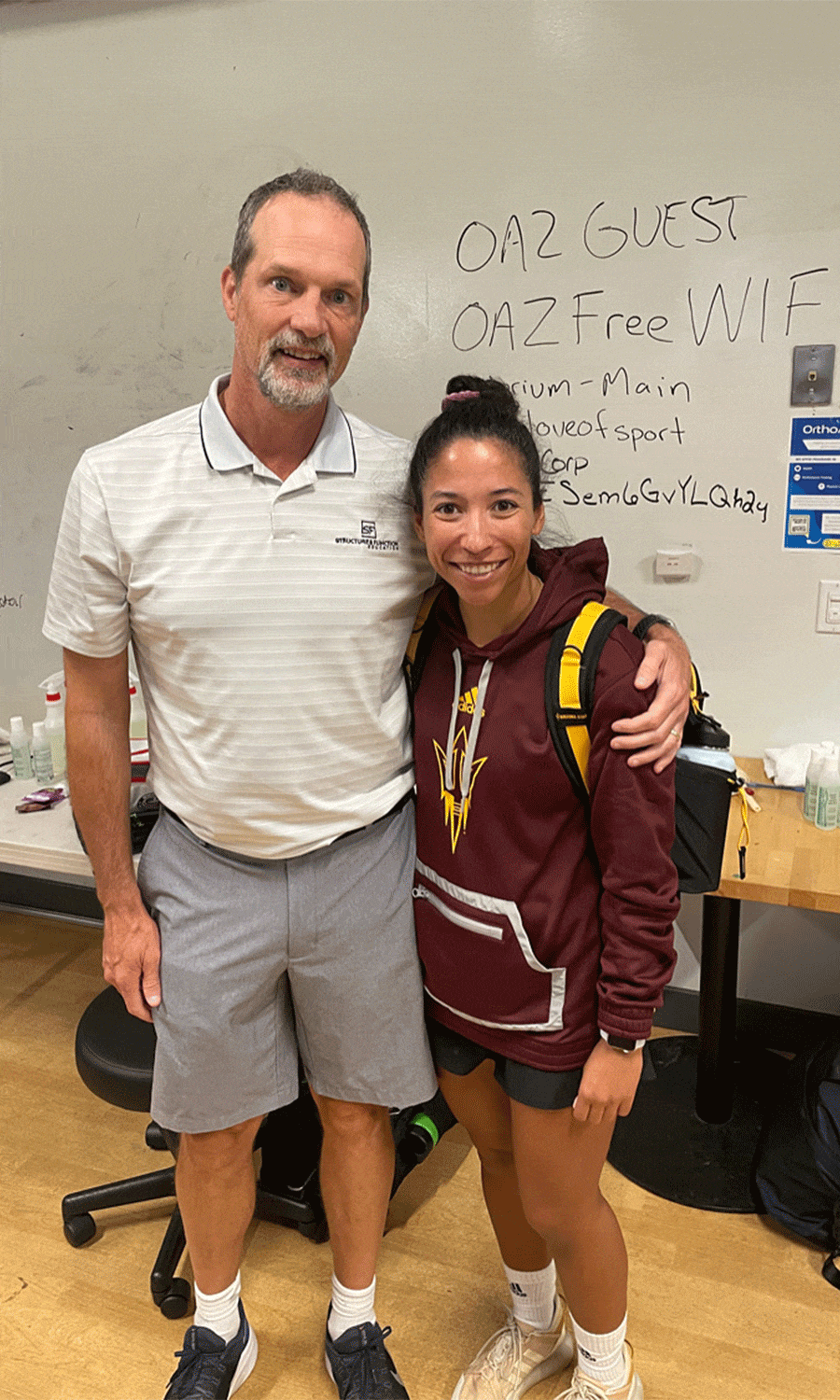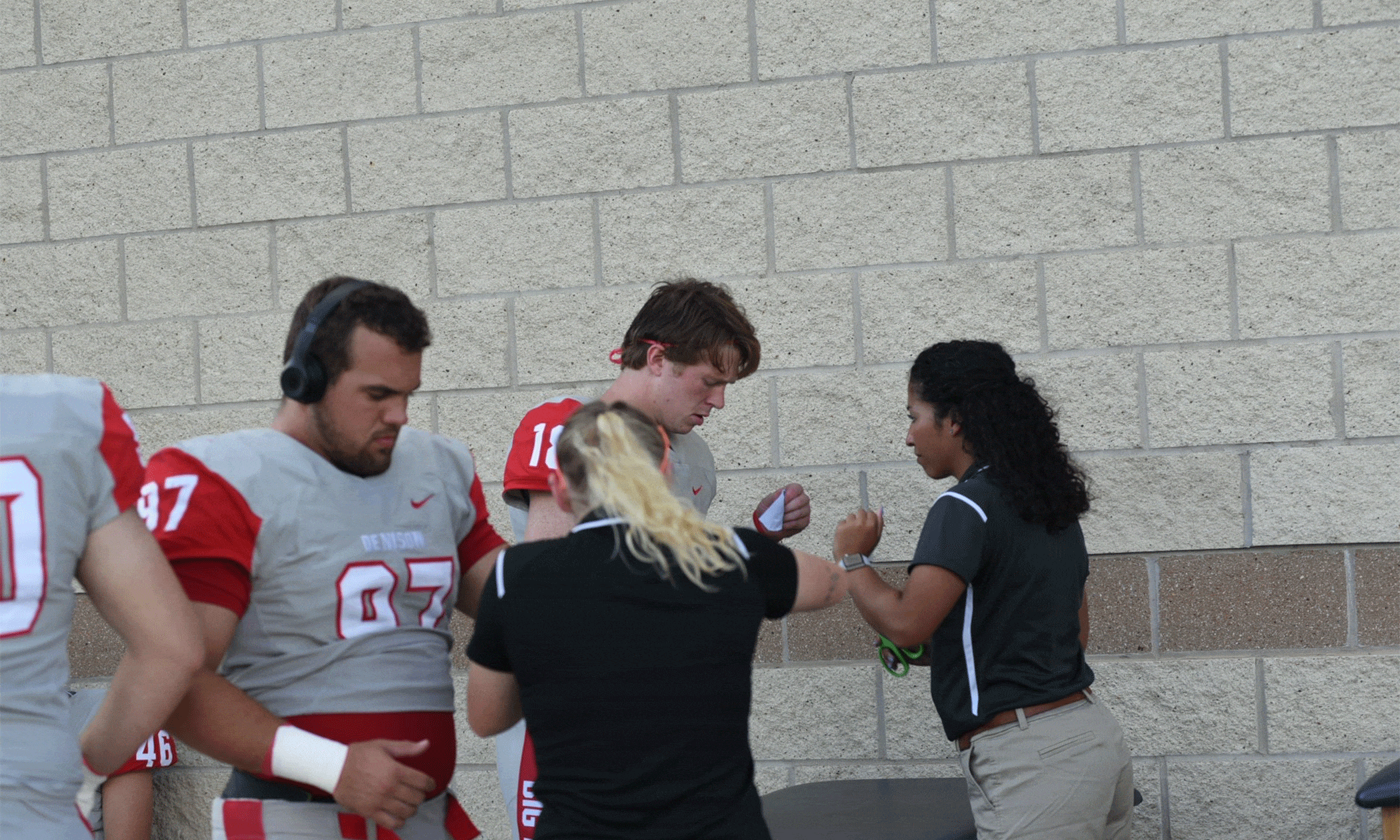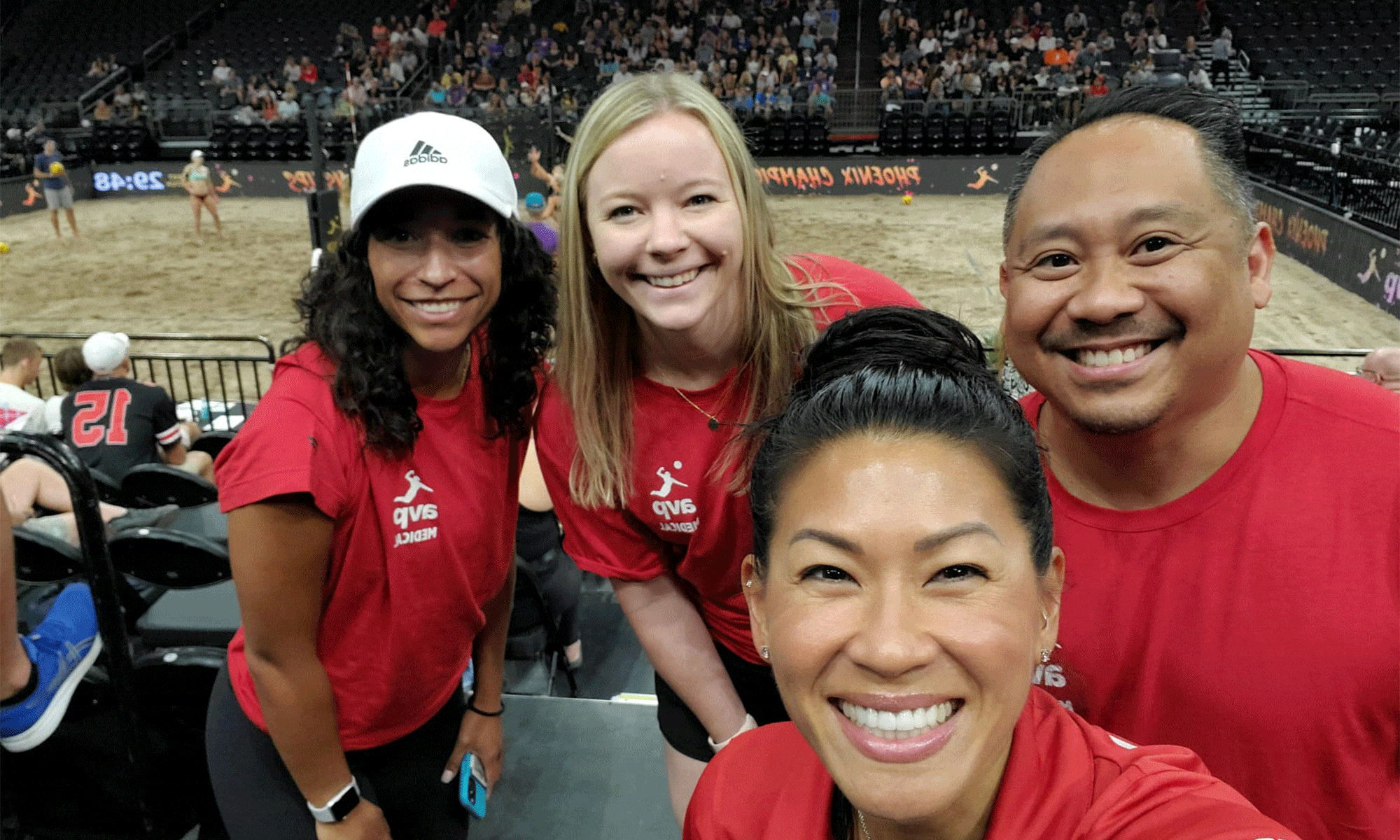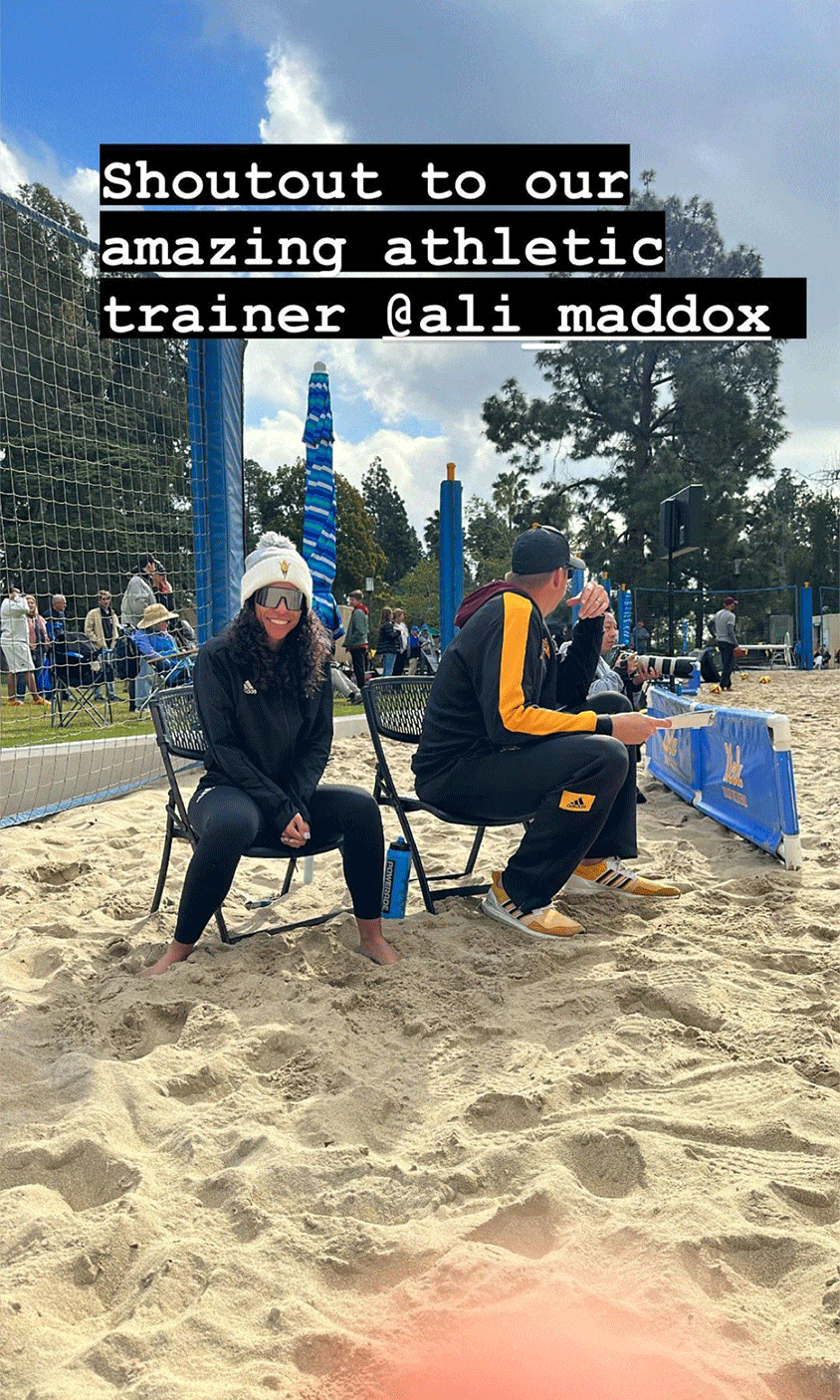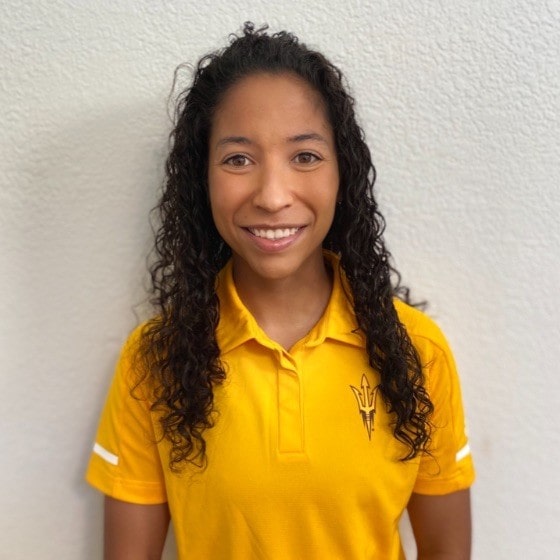Health, exercise, and sport study (HESS) majors have the flexibility to structure their courses in the ways that best support them in their career goals. HESS majors are successful in a huge variety of fields. In this series, our graduates share their stories.
Alison Maddox ’19 is the athletic trainer for the Arizona State University beach volleyball team. She got her start in her chosen profession on her first day at Denison, when she applied for a student first aide position with the sports medicine staff.
Maddox, a member of Denison’s varsity track and field team, goes on to share, “I had a pretty good idea that I wanted to go into either athletic training or physical therapy, and I had some experience in high school helping in the training room, so I was thrown in with the football team.”
“This was a sink or swim situation for me. Football is high intensity and fast paced — but I rose to the occasion. I ended up working with the football team my entire time at Denison and developed confidence in my own skills, while also soaking up as much information as I could from everyone on the sports medicine staff.”
“Being with the football team from the very start helped to solidify that I wanted to work in athletics and help high-level athletes get back to competition. My absolute favorite moment was being there when the team won the NCAC Conference Championship in 2018!”
Why did you choose to major in HESS?
I always knew that I would want to go to grad school in a healthcare-related field. I was drawn to the HESS major because I would be able to complete many of the pre-requisites for grad school while also choosing to focus more on human performance/sports. I went a very science- heavy route that prepared me well for my master’s of athletic training program at Northern Arizona University.
Tell us about your master’s program.
The time in my program was intense, but I think that prepared me for my current role as the athletic trainer for the beach volleyball team at Arizona State University. One highlight has been seeing athletes that I designed rehabs for make it back to not only playing their sport, but excelling at it.
“I don’t look at just the one thing that is bothering the athlete, I try to dig deeper.”
How did your time at Denison prepare you for graduate school?
I was able to learn a lot of the techniques that were part of my graduate program and felt confident that I had a solid foundation of knowledge. I also learned how to communicate well with athletes and how to be someone that they would feel comfortable bringing their problems to.
Were there any HESS courses or experiences that were especially helpful?
The class that I found most helpful was Therapeutic Modalities, in particular, one assignment where we described what kind of healthcare provider we would strive to be. I concluded that I wanted to be more of a practitioner, meaning that I wanted to see each athlete as whole and not just a sum of parts. This has really shaped how I am as an athletic trainer. I don’t look at just the one thing that is bothering the athlete, I try to dig deeper to determine if the pain is actually caused by a deficiency somewhere else.
What words of advice would you give current HESS majors?
Take advantage of the wide variety of courses that are offered. You never know which course will end up helping you the most in the long run. Also make connections with the professors and staff at Denison. In my experience, even after graduation, I have a big group of supporters willing to help me get to where I want to be in my career.


